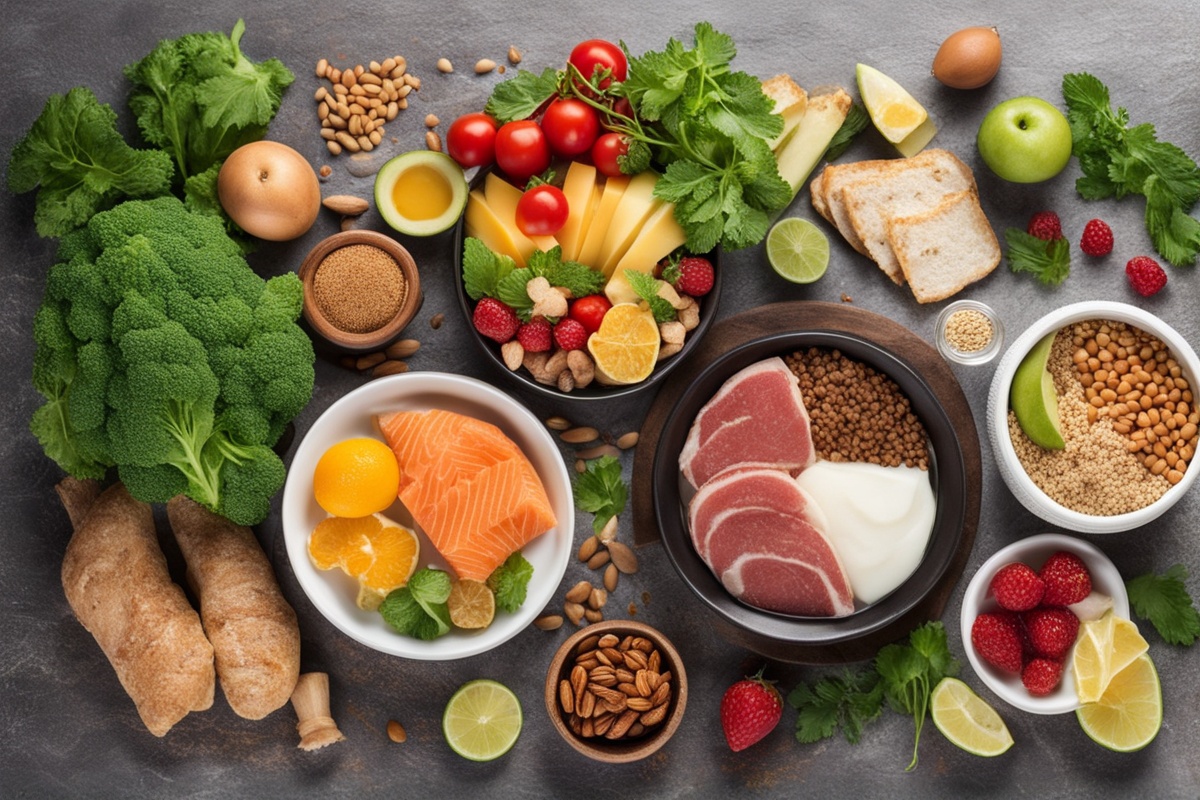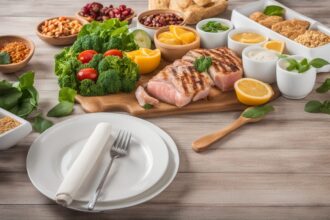Intermittent fasting (IF) has gained immense popularity as a sustainable approach to weight loss, improved metabolism, and overall wellness. However, one of the biggest challenges for those following intermittent diets is finding meals that are both nutritious and satisfying during eating windows. This post dives into Healthy Recipes for Intermittent Diets, offering practical meal ideas that align with your fasting goals while keeping your taste buds happy. Whether you’re new to IF or a seasoned faster, these recipes will help you break your fast or fuel up without derailing your progress.
Why Healthy Recipes Matter for Intermittent Diets
Intermittent fasting isn’t just about when you eat—it’s also about what you eat. During your eating windows, prioritizing nutrient-dense foods ensures your body gets the fuel it needs to thrive. Healthy recipes for intermittent diets focus on balanced macronutrients—proteins, healthy fats, and complex carbs—while minimizing processed sugars and empty calories. This approach helps stabilize blood sugar levels, reduces cravings, and supports long-term adherence to fasting protocols like 16:8 or 5:2. By choosing wholesome ingredients, you can maximize the benefits of IF, such as improved energy and mental clarity.
Breakfast Ideas to Break Your Fast
Breaking your fast with a nutrient-packed meal sets the tone for the day. Since your body has been in a fasting state, it’s crucial to ease back into eating with gentle yet filling options. Here are two healthy recipes for intermittent diets to try:
- Avocado Egg Toast: Toast a slice of whole-grain bread, smash half an avocado on top, and add a poached egg. Sprinkle with chili flakes and a pinch of salt for flavor. This meal offers healthy fats, protein, and fiber to keep you full.
- Greek Yogurt Parfait: Layer plain Greek yogurt with a handful of berries, a tablespoon of chia seeds, and a drizzle of honey. This high-protein option is quick to assemble and rich in antioxidants.
These breakfasts are ideal for shorter fasting windows, like the 16:8 method, and can be adjusted based on your calorie needs. For more breakfast inspiration, check out our post on Morning Meals for Fasting Lifestyles.
Lunch Recipes for Sustained Energy
Lunch during an intermittent diet should focus on sustaining energy without causing a mid-afternoon slump. Opt for meals that combine lean protein with complex carbohydrates and vegetables. Here are two lunch ideas tailored for intermittent fasting:
- Quinoa Chicken Salad: Toss cooked quinoa with grilled chicken breast, spinach, cherry tomatoes, and cucumber. Drizzle with olive oil and lemon juice for a light dressing. This meal is packed with protein and fiber to keep hunger at bay.
- Turkey Lettuce Wraps: Use large romaine leaves as wraps, fill with lean turkey slices, shredded carrots, and a dollop of hummus. This low-carb option is refreshing and satisfying.
These recipes are versatile and can be prepped ahead of time, making them perfect for busy schedules. Explore more lunch ideas in our guide to Meal Prep for Intermittent Fasting.
Dinner Options to Close Your Eating Window
Dinner is often the last meal of the day for many intermittent fasters, so it’s important to make it count. Focus on lighter meals that promote restful sleep while still delivering essential nutrients. Try these healthy recipes for intermittent diets:
- Baked Salmon with Veggies: Bake a salmon fillet with olive oil, garlic, and herbs, and pair it with roasted broccoli and sweet potato. This dish is rich in omega-3 fatty acids and complex carbs for recovery.
- Vegetarian Stir-Fry: Sauté tofu or tempeh with bell peppers, zucchini, and snap peas in a low-sodium soy sauce. Serve over brown rice for a balanced, plant-based meal.
These dinners are filling without being heavy, ensuring you end your eating window on a positive note. For additional dinner tips, see our article on Evening Meals for Fasting Success.
Snacks for Intermittent Fasting Windows
Snacking during intermittent fasting can be tricky, as it’s easy to overeat and disrupt your calorie goals. However, strategic snacks can help bridge the gap between meals if your eating window allows. Here are some healthy snack ideas for intermittent diets:
- Handful of Nuts: A small portion of almonds or walnuts (about 1 ounce) provides healthy fats and protein to curb hunger.
- Hard-Boiled Egg: Easy to prepare and portable, a single egg offers a quick protein boost without excess calories.
- Veggie Sticks with Hummus: Carrot and celery sticks paired with a tablespoon of hummus make for a crunchy, nutrient-rich snack.
Remember to keep portions small and avoid mindless munching. For more snack ideas, read our post on Smart Snacking During Fasting.
Tips for Creating Your Own Healthy Recipes for Intermittent Diets
While the recipes above are a great starting point, crafting your own meals allows you to tailor flavors and ingredients to your preferences. Here are some tips to keep in mind when designing healthy recipes for intermittent diets:
- Prioritize Protein: Include lean meats, eggs, or plant-based proteins like lentils to support muscle maintenance and satiety.
- Choose Whole Foods: Opt for unprocessed ingredients like whole grains, fresh produce, and healthy fats to maximize nutrition.
- Control Portions: Even healthy meals can lead to overeating if portions aren’t managed, so be mindful of serving sizes.
- Stay Hydrated: Pair your meals with water or herbal tea to aid digestion and prevent mistaking thirst for hunger.
Experimenting with flavors and textures can keep your meals exciting. For more customization tips, check out our guide to Personalizing Your Fasting Diet Plan.
Disclaimer: The information provided in this post is for general informational purposes only and should not be considered medical or dietary advice. Intermittent fasting and specific recipes may not be suitable for everyone, especially those with underlying health conditions, pregnant or breastfeeding individuals, or those on certain medications. Always consult with a healthcare professional or registered dietitian before starting any new diet or fasting regimen to ensure it aligns with your individual health needs.
References
- Harvard Health Publishing – Intermittent Fasting: Surprising Update
- Mayo Clinic – Intermittent Fasting: What You Need to Know
- National Center for Biotechnology Information – Effects of Intermittent Fasting on Health and Aging
- Academy of Nutrition and Dietetics – Intermittent Fasting Overview
- WebMD – Intermittent Fasting: What It Is and How It Works
This content is for informational purposes only and not a substitute for professional advice.






